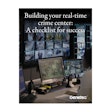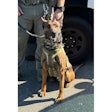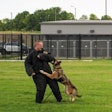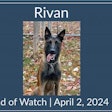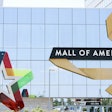In 1971, President Richard Nixon declared what he called a modern-day war on drugs, calling it "America's Public Enemy Number One." Since then, police departments all over the country have been fighting that war, without a foreseeable end.
Meanwhile, drug dealers have become more sophisticated. Their techniques of dealing and trafficking drugs continue to evolve, utilizing advanced technology and creative initiatives. Police officials say if they find a new method of catching the crooks, the drug dealers soon find a way around it and go on to develop yet another technique.
John Harris (he has requested that his real name not be used because of his extensive undercover work) has made a point of following these trends to put drug dealers away.
Out of the Ordinary
Working in narcotics bureaus is not the usual type of police work. To be successful, officers have to use all they learned on the streets, as well as their own instincts and a large dose of simple common sense.
Most of these officers have powerful qualities in common. They need to read people swiftly and accurately. They need to be able to react quickly, to fit into any environment, change personalities at a moment's notice, and keep a clear perspective during any type of situation. They are a closely knit group, fiercely protective of each other and of their work; their lives often depend on it. And, they need to be creative in order to keep up with the drug dealers.
Harris certainly fits the bill.
He has spent most of his career as a Nassau County, N.Y., detective combating drug dealers and finding new ways to put them away. At first glance, it would be difficult to identify him as a cop. Despite his self-assuredness and obvious confidence, he appears low key, taking on the role of just another average blue-collar worker. He is experienced in blending in, not bringing any attention to himself. But beneath the unassuming and laid back demeanor there is a strong sense of a deep, defensive barrier.
He has dedicated his career to putting a significant dent in drug trafficking, and his experiences are indicative of what it takes for a good detective to make some inroads in the drug war.
Harris can easily be considered a veteran narcotics detective, having spent more than 15 years in the Nassau County Narcotics Bureau.
Although recently retired, he has not lost his will to battle the drug trade, as he plans to continue assisting agencies that do the same type of work he did for Nassau County. It turns out that spending so many years working narcotics has made it tough to get the job out of his system.
Becoming a Narc
After spending more than a decade as a cop on patrol, Harris was asked, along with a dozen other officers, to transfer to narcotics. With illegal drug use on the rise, the department had decided to significantly increase the size of its bureau.
The transfer was a major change for Harris. Working in narcotics was different from routine police work. On his first night, he said, he was executing search warrants, knocking down doors, and going to crack houses.
Harris learned quickly that no matter how good a cop you are, the system doesn't always work with you. He says he would arrest people, and then find them back out on the street just a few months later.
"You saw how the system worked, but there was no sense in getting gray hairs about it," he says. Instead, he worked with the system and just kept arresting the same people over and over again.
"They would get six months the first time, then three to seven, then seven or better. Most of them we arrested three times," he adds.
Despite the frustrations, Harris continued on with dogged determination, until six years ago when he was assigned to the multi-jurisdictional task force. That's when everything changed.
The Big Deals
The focus, Harris says, went from $20 crack buys to multi-kilo deals.
"It was a different ball game; you were going up the food chain," he explains. "When you get to that point you are dealing international, Mexico, South and Central America, Europe. It is a bigger society, not limited to Nassau County. You are constantly on the phone with agents all over the country. It's more of a challenge-not that narcotics wasn't a challenge-but this was bigger."
And in order to meet that challenge, an officer has to expand his abilities. If he does that well, the results can be more than worthwhile.
Harris has been cited for "thinking out of the box" and "connecting the dots," two qualities that make for a good narcotics investigator. Also essential is the ability to coordinate efforts with local, state, federal, and international agencies.
According to Harris, to be a good narcotics officer, you not only have to learn to work with the "bad guys" during undercover work, you have to learn to work well with the good ones as well. Every investigation depends on cooperation, and it is that cooperation that is essential to a successful outcome.
Changing roles, always trying to be one step ahead of the drug dealers, thinking of new methods to trap them, these become the everyday challenges of a task force member.
In one such case Harris worked, an ongoing investigation indicated that cocaine was being smuggled from Miami, Fla., to Kennedy airport in New York. The drug dealers were looking for a "dirty" airport employee to help them out. Harris was able to infiltrate the group and pose as that person. Then he worked out the plan.
The dirty employee was going to get the luggage off the plane, put it into a service truck, and throw it over a fence. First a test package came through from Columbia. After coordinating with federal agencies at the airport, Harris got the luggage, which was filled with odd items meant only for him to identify and prove he could deliver. After passing that test, a total of almost 60 kilograms of cocaine was sent in three separate shipments, all ending in the arrest of the sellers.
This type of case is indicative of the many that Harris has handled successfully. But even at the national level there are times of frustration.
Cases he started on Long Island took on national roots, and then international ones.
In one of his largest cases, based on years of cultivating information both within and outside the United States, Harris learned of multi-ton shipments of cocaine coming from South America. These shipments would come in on large ships and then be transferred to smaller, faster ones. The smaller boats would then transfer the cocaine to ports, beaches, and up rivers for distribution. Once the information was developed, Harris was able to supply the Coast guard with that information, which led to the seizure of one of the three smaller boats. It contained three tons of cocaine.
"We got three tons; we had a shot at a lot more," Harris says. For him, that was a victory. "I know someone lost money. We only got to arrest the knuckleheads that operated the boat, but the owner lost the money."
The scenario was repeated four times, and a total of 15 metric tons of cocaine was seized.
The drug battle continues on every front: air, sea, and land. In a case that originated in Amsterdam, a shipment of 80,000 ecstasy pills in a customs Mercedes was coming into the United States through a New Jersey port. Harris' team got a warrant and, after sitting at the port for 10 days, they were able to find the car and put a tracking device on it.
"Here are 200,000 containers in that port alone, every day, and it is not one of the biggest," he says. "There is no way every container can be checked. It is impossible. There is no way to stop it."
Every case Harris has dealt with, while each unique in its own way, also had some things in common. Transportation vehicles that are used by drug dealers often have sophisticated "traps" that hide money or drugs. These traps can only be found through a complicated set of maneuvers. They can range from pushing a series of buttons and then using magnets to using special keys. This is just one more way the drug dealers find to outwit law enforcement.
No End In Sight
By taking on the drug battle nationwide, the chances of victories are greater. Drugs are not simply a local problem, and cannot be dealt with just on local levels. That is why interagency cooperation and task forces are successful.
"In drug trafficking cases you don't have to hand it off to someone else, or try to teach someone else. You never know where it goes," Harris says. His cases have taken him all over the world. "I have developed a network of information exchanges and cooperation all over the world. When I get something I usually have someone to call and get the information."
Harris sees the drug battle as an ongoing one. "We don't grow cocaine plants in the United States. We can't keep people out, let alone a package of cocaine. Columbia's now shipping drugs through Mexico. If we tried to check everything we would have traffic jams 20 miles long. Until the American consumer stops using drugs, you will never beat it. It is just like pissing in the wind. You do what you can do."
And so it becomes a constant challenge, one that often keeps a dedicated officer away from his family and friends for extended periods of time.
In Harris' case, his techniques have been very successful; the facts are there to prove it. In the past five years he was responsible for seizing 1,158 kilograms of cocaine, 11.3 kilograms of crack-cocaine, 96.6 kilograms of heroin, and approximately $6.1 million of currency.
Still, he keeps it all in perspective. "I love this job," he says, but then adds, "You can't have the perspective that you can clean up the world, or you will go out of your mind."
Shelly Feuer Domash is a Long Island-based freelance writer and co-author of the book "Crime and the Media."
Taking on the Drug War
In 1971, President Richard Nixon declared what he called a modern-day war on drugs, calling it "America's Public Enemy Number One." Since then, police departments all over the country have been fighting that war, without a foreseeable end.








